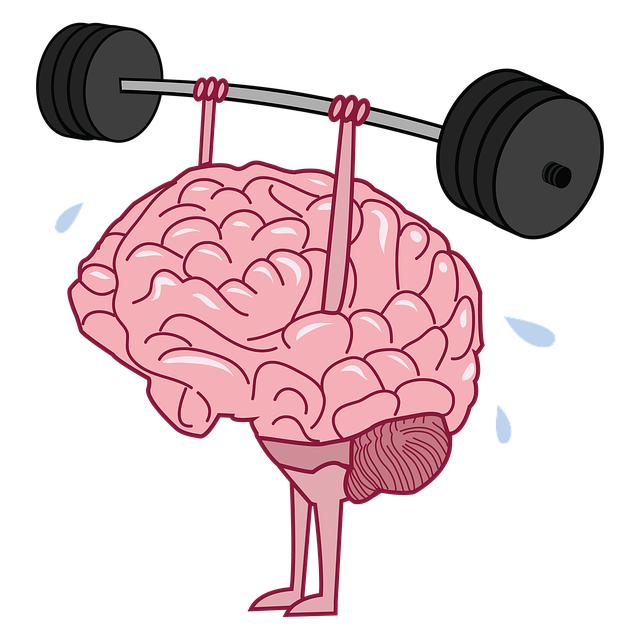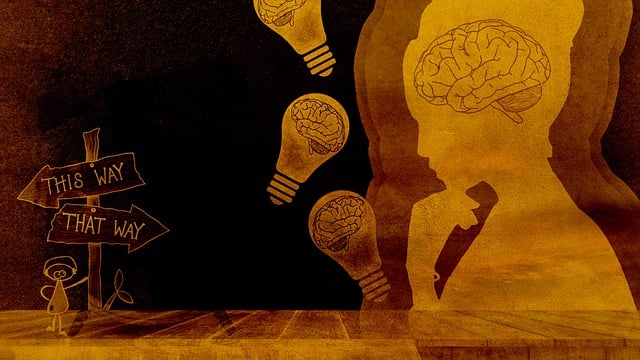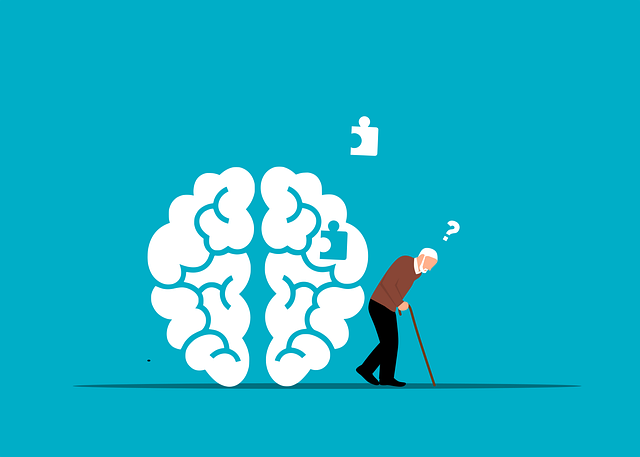Emotional Intelligence (EI) is a vital skill set enhanced by Denver Acceptance and Commitment Therapy (ACT), which teaches stress reduction methods through workshops. High EI benefits include improved communication, stronger relationships, better career outcomes, and informed decision-making. ACT promotes emotional understanding, acceptance of emotions, and engagement in valued actions, leading to healthier lives. Incorporating ACT techniques into daily routines and practices boosts mental wellness, enhances cultural competency for healthcare providers, and contributes to overall well-being through compassionate behavior. Measuring progress with self-assessments is crucial for personalized EQ cultivation, linked to long-term mental health and resilience.
Emotional intelligence (EQ) is a powerful tool for personal growth and professional success. Understanding and cultivating EQ offers numerous benefits, from improved relationships to enhanced decision-making. This article delves into the transformative power of Denver Acceptance and Commitment Therapy (ACT), a game-changer in emotional well-being. We’ll explore key components of building EQ, provide practical strategies for daily application, and discuss how to measure progress. By integrating ACT techniques, individuals can navigate life’s challenges with greater resilience and authenticity.
- Understanding Emotional Intelligence and its Benefits
- The Role of Denver Acceptance and Commitment Therapy (ACT) in Enhancing EQ
- Key Components of Building Emotional Intelligence
- Practical Strategies for Daily Application of ACT Techniques
- Measuring Progress and Sustaining Emotional Well-being Through EQ Development
Understanding Emotional Intelligence and its Benefits

Emotional intelligence (EI) is a powerful skill set that enables individuals to recognize and manage their own emotions, as well as understand and empathize with others’ emotional states. This ability goes beyond mere emotional awareness; it involves using this understanding to guide thoughts and actions, fostering positive relationships and enhancing overall mental wellness. Denver Acceptance and Commitment Therapy (ACT), for instance, is a therapeutic approach that emphasizes the importance of EI in navigating life’s challenges. By learning stress reduction methods through ACT workshops organized by mental wellness organizations, individuals can develop greater emotional resilience and adaptability.
The benefits of high EI are far-reaching. It improves communication, strengthens relationships, boosts career success, and promotes better decision-making. Research suggests that people with strong emotional intelligence are more adept at managing stress, which is a significant factor in preventing various mental health issues. Incorporating stress management techniques into daily routines, whether through ACT workshops or other methods, can help individuals cultivate emotional balance, ultimately leading to a happier and healthier life.
The Role of Denver Acceptance and Commitment Therapy (ACT) in Enhancing EQ

Denver Acceptance and Commitment Therapy (ACT) offers a powerful approach to enhance emotional intelligence (EQ). This therapy focuses on accepting one’s emotions rather than trying to suppress or avoid them, which is a key component in building EQ. By learning to observe thoughts and feelings without judgment, individuals can develop a deeper understanding of their emotional responses. ACT encourages individuals to engage in valued actions, promoting a sense of purpose and motivation that drives positive changes in behavior and interpersonal relationships.
Incorporating Denver ACT into personal growth practices can significantly improve healthcare provider cultural competency training. It helps professionals better manage their own emotions and react calmly in stressful situations, leading to more effective conflict resolution techniques. Additionally, mood management skills cultivated through ACT contribute to improved overall well-being, enabling individuals to navigate challenging emotions constructively and foster healthier relationships.
Key Components of Building Emotional Intelligence

Building emotional intelligence involves several key components that can be cultivated through mindful practices. One effective approach is Denver Acceptance and Commitment Therapy (ACT), which focuses on accepting emotions as they are, while committing to actions aligned with personal values. This therapy encourages individuals to become aware of their feelings, observe them without judgment, and develop a more flexible response to them.
Emotional healing processes often require cultivating self-awareness, understanding one’s emotional triggers, and learning to regulate responses. Cultural sensitivity in mental healthcare practice is also crucial, as it helps create inclusive environments that respect diverse perspectives and experiences. Additionally, burnout prevention strategies for healthcare providers are essential, ensuring professionals can maintain their well-being while supporting the emotional healing of others.
Practical Strategies for Daily Application of ACT Techniques

Incorporating Acceptance and Commitment Therapy (ACT) techniques into daily life can significantly enhance emotional intelligence and overall mental wellness. Denver Acceptance and Commitment Therapy offers practical strategies to help individuals navigate their emotions more effectively. One key approach is mindfulness, which involves observing thoughts and feelings without judgment, allowing for a greater sense of detachment from negative thought patterns. By practicing present-moment awareness, individuals can reduce avoidance behaviors and engage more fully in their lives.
Additionally, ACT encourages the development of values and goals that align with personal aspirations. This process helps individuals set meaningful actions in motion, fostering a sense of purpose and motivation. Engaging in activities that support these values—whether through volunteering, creative pursuits, or social skills training—can lead to greater life satisfaction and improved relationships. Incorporating these ACT techniques into daily routines, especially when coupled with trauma support services and mental wellness podcast series production, can profoundly contribute to one’s overall well-being.
Measuring Progress and Sustaining Emotional Well-being Through EQ Development

Measuring progress is a crucial aspect of emotional intelligence (EQ) development, allowing individuals to recognize their growth and strengths. This journey often involves utilizing tools like self-assessments and feedback from others to gain a comprehensive understanding of one’s EQ level. By regularly evaluating their emotional awareness, social skills, and self-management abilities, individuals can track their progress over time. For instance, the Denver Acceptance and Commitment Therapy (ACT) model offers structured assessments to measure EQ and guide personalized growth. These tools help foster accountability and provide clear directions for further development.
Sustaining emotional well-being is intricately linked to ongoing EQ cultivation. As individuals enhance their emotional intelligence, they often experience reduced anxiety and improved mental wellness. Compassion cultivation practices, a key component of many mental wellness podcast series production, play a significant role in this process. By practicing self-compassion and extending kindness to others, individuals can build resilience, fostering an environment conducive to long-term EQ development and overall mental health.
Emotional intelligence is a powerful tool for personal growth and well-being, and with techniques like Denver Acceptance and Commitment Therapy (ACT), anyone can enhance their EQ. By understanding emotional intelligence, employing ACT principles, and implementing practical strategies, individuals can improve self-awareness, regulate emotions, and build stronger relationships. Sustaining progress in emotional well-being is achievable through continuous practice and measurement, making it a rewarding journey towards personal development.














